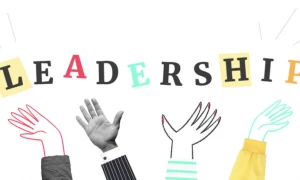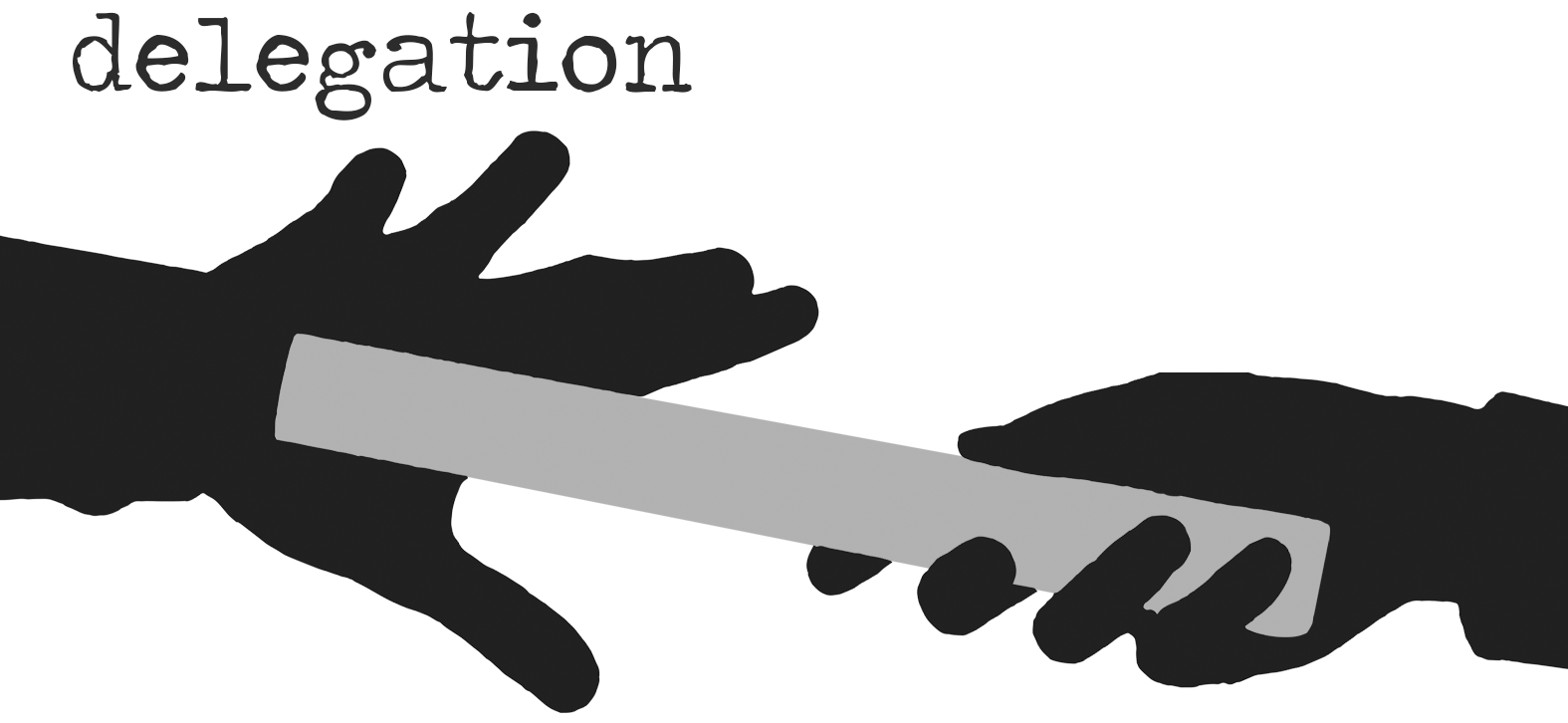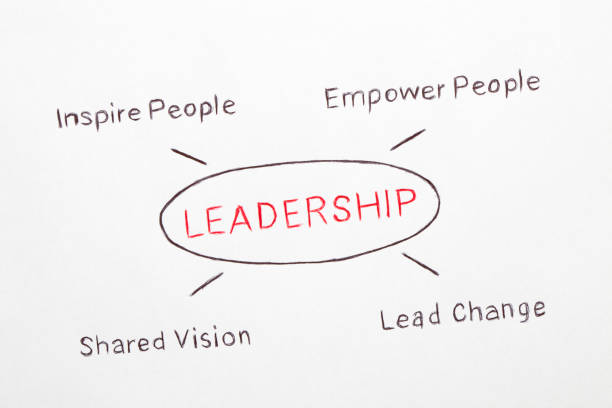
How to choose the right leadership training programs to get the expected result? What makes a good leader? Why do conferences sometimes end in failure?
Choosing Effective Leadership Training Programs: Basic Criteria
The modern manager has to be an effective leader who can set the task, motivate the team, and achieve results. But often, we need to develop those necessary qualities. Therefore, there are various leadership training programs, and each such program promises high results. To understand which program is right for you, you should understand clearly who is a good leader.
Leader: Definition and Basic Qualities
According to the definition from Wikipedia, 'a leader is a person who has credibility and acknowledged authority in a group, team, or organization. He or she holds significant influence and performs controlling actions.
In other words, a leader is a person who leads a group of people united to achieve a goal. And 'leadership' is a set of steps that will help the group achieve its goal.
An ordinary person who works in a team thinks first of all about his own benefit. At the same time, the leader makes every effort to achieve the common goal for the team. They are ready to make management decisions, take risks, and accept the consequences of these decisions. But most importantly, they lead others.
What Makes a Good Leader?
There are two types of leadership - authoritative (influential) and effective leaders. The first one means that the leader motivates people to implement his or her (leader's) ideas and instructions. The second case means that the leader is willing to collaborate and accept the team's ideas to get things done. A truly good leader is a person who combines the qualities of these two types.
A good leader is interested in achieving results, selfless rather than selfish. This person is willing to motivate people and give everyone involved what they deserve. A good leader knows exactly what the group has achieved and what more needs to be done. He is not afraid to delegate tasks and responsibilities but is also always in control of the result.
Tips For A Leader:
- Delegate responsibility. Those who feel responsible for the outcome try to reach the goal more effectively. It can be personal responsibility or leadership of a department. Practice shows that a good leader always tries to help subordinates grow.
- Recognize achievements. A good leader always recognizes the talents, skills, and special achievements of employees. Praise is also motivating.
- Be strict, but lenient. An effective leader knows how to make the employees feel a certain discomfort, which helps increase productivity. But you shouldn't go overboard. Employees should feel that goals are set realistically, and they will always receive help when needed.
- Learn to accept any results. A good leader understands that mistakes are possible in any job. If some decisions haven't brought results, such a leader doesn't blame the employees or look for external reasons. This person knows how to accept responsibility for mistakes.
- Motivation and values. A good leader should know how to rally a team, to give people a sense of the value of their work and its results. They find motivation for the team as a whole and for each participant in the process individually.
Leadership Training: Basic Approaches
To raise the level of executive' qualification, there are special leadership training programs that explore different approaches, learn the language of leadership, discover and improve different skills. The aim of such programs is to find the best candidates for executive positions and to train the ability to get the team to do their jobs. The training programs may include various forms of communication, corporate ethics, motivational skills, and the ability to inspire, analyze, and take risks.
Direct Leadership
In this case, the leader develops plans and directs a group of people involved in the work according to these plans. This approach doesn't mean that the leader tells everyone on the team what to do and how to do it. There is a fine line between direct leadership and order, and a good executive should know that.

Coaching
One of the most important qualities of a good leader is a vision of process and outcome. In a coaching approach, the leader should explain this idea to everyone on the team. Communication, clarification, and the ability to explain and teach are essential here. If the leader is good at this technique, the team will be inspired by the idea, and work together for results.
Support And Development
We have already said that a good leader helps employees grow and develop. In this approach, the executive communicates with the project participants a lot. This involves shared discussions, consideration of different ideas from team members, brainstorming sessions, etc. This way, each person feels needed, feels like a part of the team, and is involved in the process.
Delegation of Authority
Many companies like to raise their own staff, including future managers. In this case, the delegation of authority can be viewed both as part of the leadership process and as a separate leadership training process for promising members of the team.

What Can Leadership Programs Do?
A good leadership training program is a real opportunity to learn useful information and skills to further your career and increase your effectiveness as a leader. Many companies send their top and middle management to such training programs. But often, people attend leadership conferences privately as well to achieve their goals in any area of activity.
What can such a program give you?
- Personal growth. You will learn to better understand yoursel, unlock your potential in the field of interaction with people, communication, and organizational skills.
- Discovery of abilities. You will understand how you can become a leader, learn your strengths and weaknesses, and acquire new practical skills.
- The ability to persuade and inspire. Very often, people just don't know how to find the right words and approaches to inspire a team. Good leadership training programs include theory and practical exercises in this area.
- The ability to plan and manage your point of view. A leader must think strategically, plan work and development, but at the same time, this person has to take responsibility for their decisions, admit mistakes, and be able to hear other people.
Causes of training failures
It may sound sad but training programs don't always guarantee the expected results. In some cases, conferences end in failure. Participants attend lectures and seminars, eager to learn something new, but in the end, they realize that the benefit of the time and money spent is tiny or absent at all.
The main reasons:
- Lack of planning and clear goal-setting. The training will bring the expected results if the management of the customer and representatives of training courses clearly define the content of the course and the expected results.
- Theory without practice. In some cases, the leadership training process comes down to a large number of theory lectures, which are backed up with little or no practice. People usually come to such training sessions to gain practical skills. The theory is not that interesting for them, and without an understanding of how to apply it in life, it's useless.
- The trainer does not use his or her knowledge in practice. It’s another big disadvantage of any training program. If participants see that the lecturer actually doesn't use the techniques they talk about, the confidence in this person drops.
To avoid failure, you should choose your program carefully: pay special attention to companies that have been on the market for more than a year, update their courses, and make leadership training effective. Learn the training plan in advance, discuss the results with representatives of the company. Talking to the lecturer can also be beneficial. All of this will help make the right choice.

Results of Leadership Training for Business and Individuals
Large companies, which are interested in the loyalty of their employees, regularly conduct various types of training to allow the professional and personal growth of their employees. If making leadership training effective for you or your management is important, the implementation of the tasks will always be truly effective.
Make Better Decisions
The leadership training process helps to take a broader view of the tasks at hand. The leader will learn to see the project as a whole, analyze it, and plan the necessary actions at the right level of detail. Knowing how to make good management decisions is a critical component to the success of any business.
Look Into The Future with Confidence
Almost all management programs teach people to take responsibility for their actions. An executive achieves the necessary skills to work with large amounts of information, conduct complex analyses, and make forecasts. Their decisions will be validated, and in case of a mistake or unexpected changes on the market, such a person will confidently, calmly, and systematically correct the situation.
Professional Growth and Loyalty of Employees
Each person aims at development. This includes professional skills, career growth, and income rate. A company can significantly increase the loyalty of employees by training its professional staff, holding training sessions for middle and senior managers, and helping the rank-and-file employees acquire new skills. Otherwise, you will constantly face the situation when your best professionals reach a certain level and leave for the competitors.
If you take leadership training on your own initiative, having a mention of such courses in your resume increases your chances of employment, especially if you aspire to a senior position in a reputable company. Also, leadership skills help you develop your business and achieve any goals, including those outside the business sphere.


